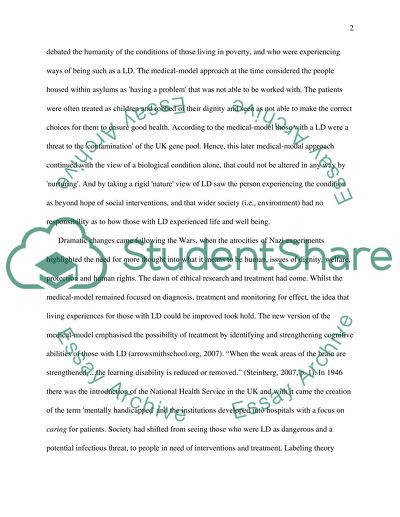Cite this document
(“Adults with learning disabilities Essay Example | Topics and Well Written Essays - 1500 words”, n.d.)
Adults with learning disabilities Essay Example | Topics and Well Written Essays - 1500 words. Retrieved from https://studentshare.org/education/1524357-adults-with-learning-disabilities
Adults with learning disabilities Essay Example | Topics and Well Written Essays - 1500 words. Retrieved from https://studentshare.org/education/1524357-adults-with-learning-disabilities
(Adults With Learning Disabilities Essay Example | Topics and Well Written Essays - 1500 Words)
Adults With Learning Disabilities Essay Example | Topics and Well Written Essays - 1500 Words. https://studentshare.org/education/1524357-adults-with-learning-disabilities.
Adults With Learning Disabilities Essay Example | Topics and Well Written Essays - 1500 Words. https://studentshare.org/education/1524357-adults-with-learning-disabilities.
“Adults With Learning Disabilities Essay Example | Topics and Well Written Essays - 1500 Words”, n.d. https://studentshare.org/education/1524357-adults-with-learning-disabilities.


